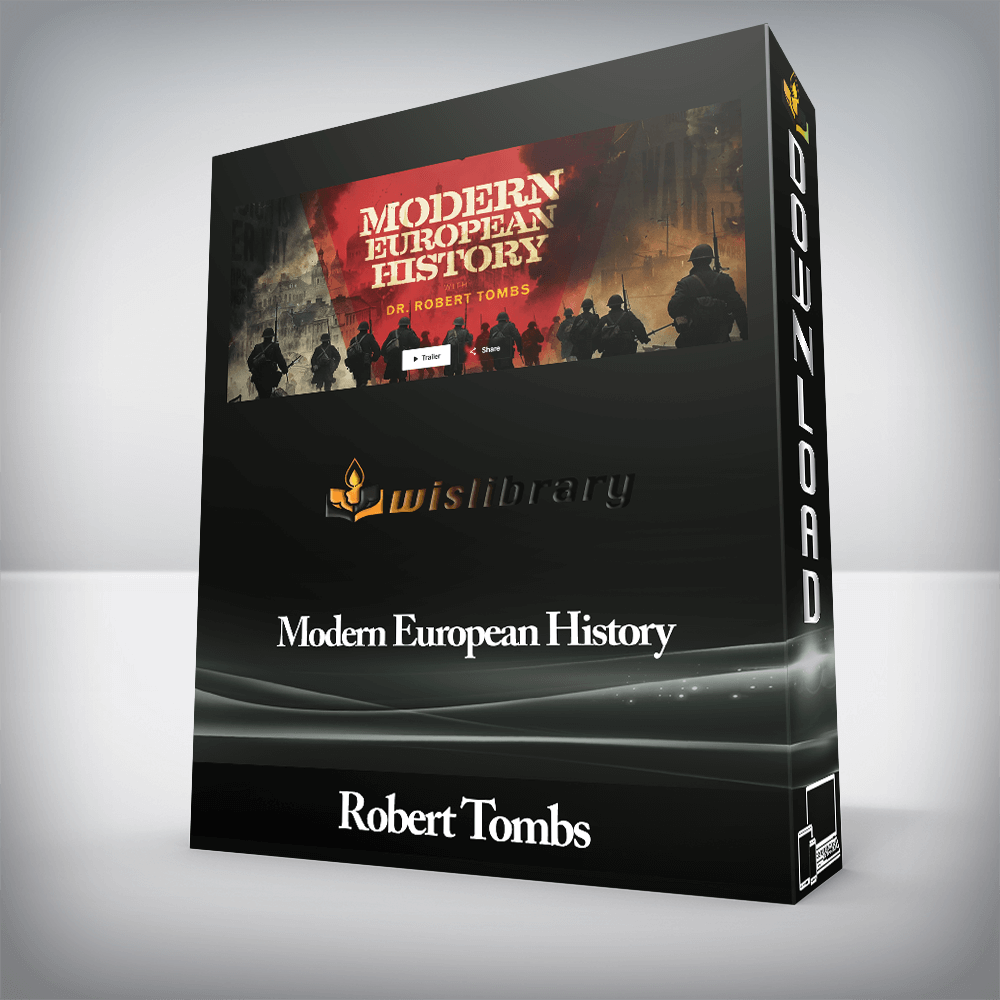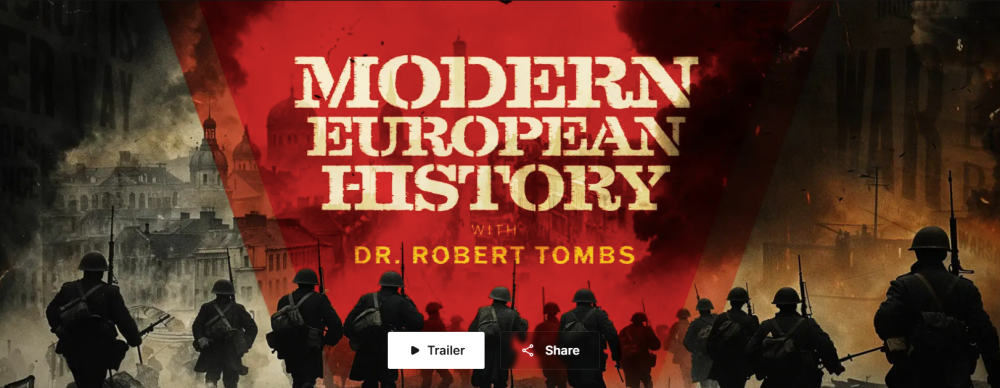

Historian
In Modern European History, an eight-hour course, Dr. Robert Tombs reveals Europe’s transformation from the Enlightenment to the present, examining key developments such as reason-based thinking, industrialization, and the rise of modern nation-states. We trace Europe’s journey through world wars, imperial expansion and decline, and the Cold War, highlighting the interplay between intellectual, social, and political forces. The course also explores the creation of the European Union, ongoing debates about colonialism, democracy, and European identity, and current challenges to European unity, connecting historical patterns to present-day issues.
In our introductory lecture, Dr. Tombs sets the stage for the history of Europe, beginning with the significant changes around 1688 that marked the end of religious wars and the emergence of Enlightenment thinking. The lecture examines key Enlightenment principles including reason, tolerance, and progress, while highlighting influential figures such as Locke, Voltaire, and Rousseau, and discussing the complex relationship between Enlightenment ideals and their practical implications for colonialism, slavery, and modern criticisms.
In lecture two, we explore the paradox of the Enlightenment era as a time of intellectual progress and unprecedented warfare, focusing on the major conflicts that shaped 18th-century Europe and their global impact. We examine how sea power, commerce, and financial systems influenced the balance of power, particularly between Britain and France, and how rising patriotism transformed traditional loyalties. We also analyze the French Revolution, its aftermath, and Napoleon’s impact, highlighting the shift toward an international order aimed at maintaining peace through diplomacy.
In lecture three, we study Europe’s transformative period during the Industrial Revolution, focusing on the shift from an organic to a mineral economy and its far-reaching social and political consequences. The lecture examines how technological innovations, primarily in England, led to unprecedented economic growth and urbanization, while also discussing the emergence of new political ideologies, particularly nationalism and romanticism. Finally, we address the evolution of political rights and representation across Europe, including the gradual expansion of suffrage and the emergence of socialist movements.
In lecture four, we consider the significance and complexities of 19th-century European empires, with a focus on the British Empire and its global impact. We examine the key drivers of imperial expansion and analyze the economic, social, and cultural implications of colonialism. The discussion also addresses contemporary controversies surrounding empire, including debates about cultural artifacts, orientalism, and decolonization, highlighting the complex nature of imperial legacies.
In lecture five, we examine the lead-up to and impact of World War I, described as the “seminal disaster” of the 20th century. Dr. Tombs examines Europe’s shift from relative stability to catastrophic conflict, triggered by the assassination of Archduke Franz Ferdinand and escalated by the German Schlieffen Plan. We reflect on the war’s transformation into the first industrial-scale conflict, its global reach, and its devastating consequences, including the collapse of empires, economic crisis, and the rise of totalitarian regimes.
In lecture six, we witness Europe’s transformation from 1914 to 1945, focusing on the descent into World War II despite efforts to maintain peace after World War I. We examine Hitler’s expansionist ideology, the failure of appeasement policies, and the development of total war, including the tragedy of the Holocaust and strategic bombing campaigns. The discussion also analyzes why Nazi Germany could not win the war despite initial successes and explores the lasting moral and cultural impact of the conflict on European society.
In lecture seven, we reflect on the aftermath of World War II in Europe, focusing on its physical, moral, and psychological devastation. We explore the onset of the Cold War and the division of Europe by the “Iron Curtain,” along with the rapid dissolution of European empires and the complex process of decolonization. The lecture also examines the rise of Soviet communism and its impact on Eastern Europe, as well as the social and cultural upheavals of the 1960s, including youth rebellion, declining religious observance, and growing social liberalization, culminating in the Soviet system’s collapse in 1989.
In our eighth and final lecture, we explore the concept of European Unity, examining its evolution from early ideals to the modern European Union and the complexities of Brexit. The lecture delves into the historical development of European integration, discussing key milestones such as the Coal and Steel Community, the Euro currency, and the challenges facing European unity today. The discussion concludes with a critical examination of current controversies surrounding European history, colonialism, and the challenges of maintaining European values in the modern world.
There are no reviews yet.
You must be <a href="https://wislibrary.net/my-account/">logged in</a> to post a review.